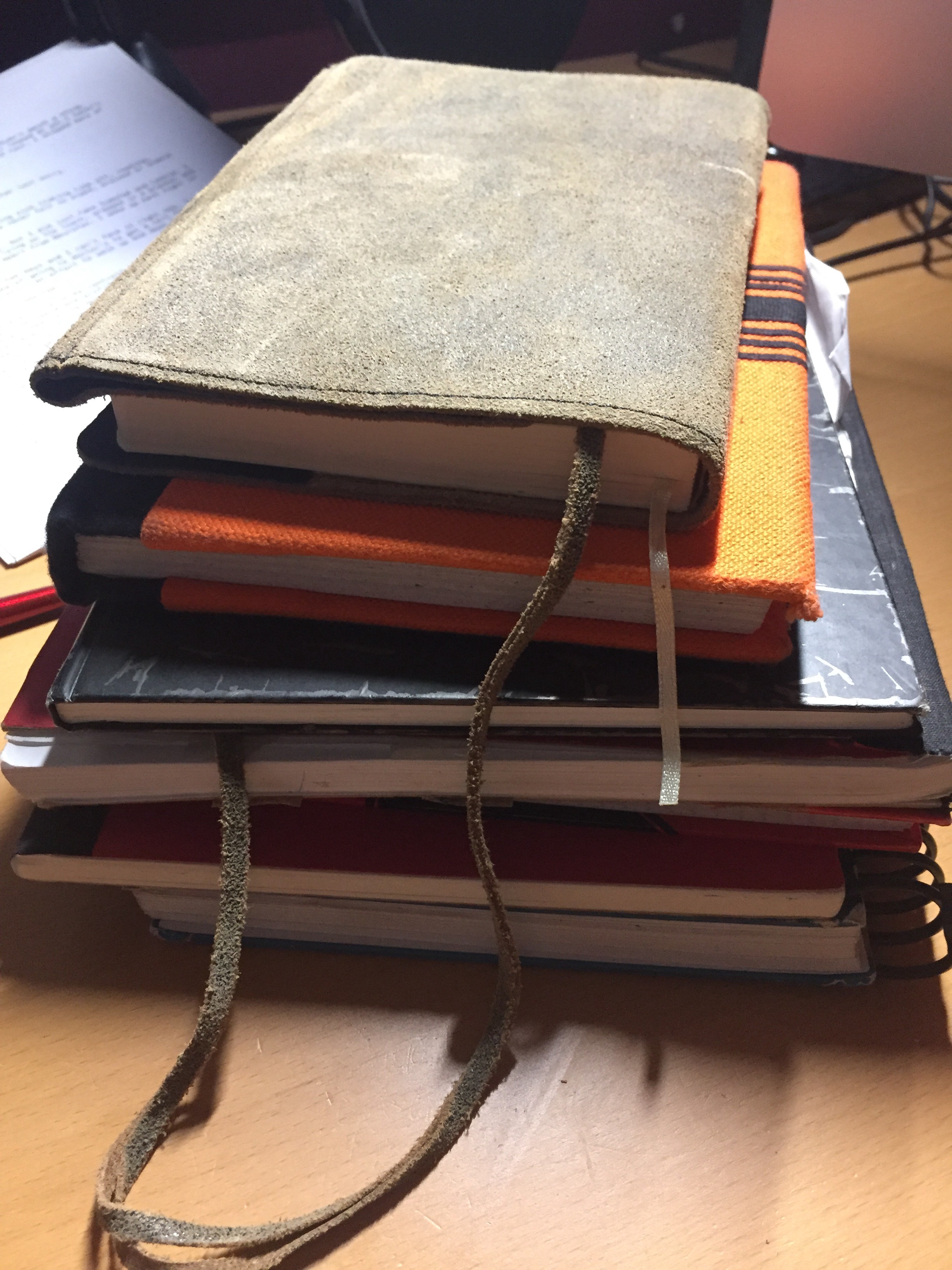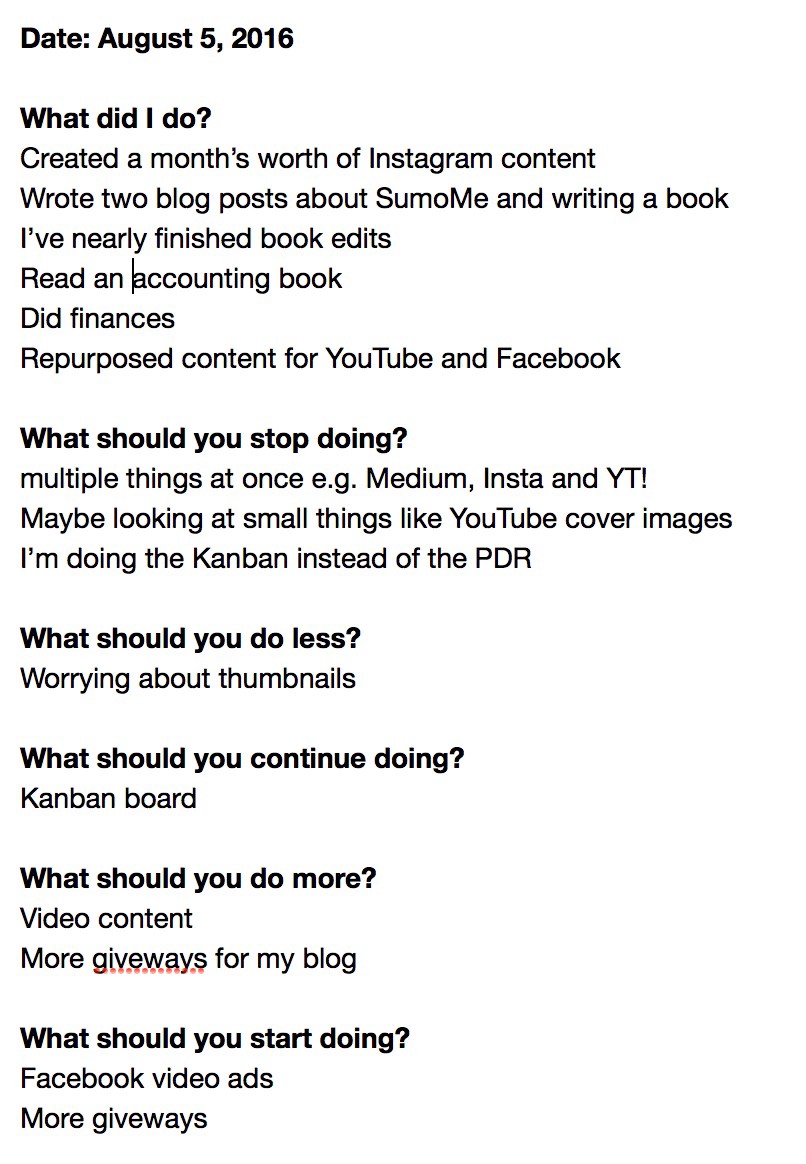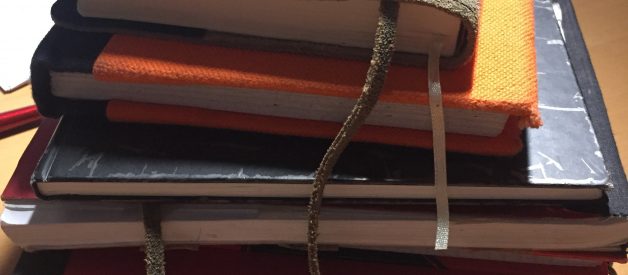Years ago, I hated writing. And yet, I wanted to earn an income from writing, publish a best-selling book and call myself an author. Instead, I avoided the blank page as if it carried the bubonic plague. I wanted to build a career as a professional journalist, so I could impress my college class mates. Instead, I collected one rejection letter after the next. I had quite the pile.
Every time I set out to write consistently, I failed. Then, I tried journaling. This habit, which I?ve practiced on and off for over 20 years now, ignited my love for writing. It also helped me become a better person.
Here?s how journaling affected me and how you can start practicing this habit.
 A collection of my old journals
A collection of my old journals
Several years ago, I held a job as a care worker in a residential care home in the community.
I spent my working days cleaning the care home, administering medicating and teaching the residents how to shop and cook for themselves.
Back then, the Irish government was busy bailing out banks. My friends were out of work. Ireland was bankrupt. But my job was secure. Go me.
There was just one problem: I was terrible at it.
One night, I came home and said to my wife: ?They want us to be caretakers, cleaners, doctors, nurses, mechanics, personal assistants and more, and it?s never enough. I?m going insane.?
?You don?t have to,? my wife said.
?What do you mean??
?If you hate the job so much, why don?t you just quit??
?That?s a ridiculous idea,? I said. ?I need a paying job. Why would you say something like that??
I went upstairs to write about our argument, but instead I reread old entries from my journal. I paused when I found this one:
?After I had come home from work last Thursday, I sat in the car outside the house for 20 minutes in silence. When I managed to go inside, I could barely speak to my wife. It was all I could do to go straight to bed.?
Einstein said the definition of insanity is doing the same thing over and over.
A month later, I handed in my notice.
I Developed An Imaginary Counsel
While out of work, I read The Journals of John Cheever. He?s an American novelist who wrote entries almost everyday. He?s also the type of writer I sacrifice small goats to. One night, I came across this entry of his:
?To write well, to write passionately, to be less inhibited, to be warmer, to be more self-critical, to recognise the power of as well as the force of lust, to write, to love.?
That struck me as an ideal to strive for. I could almost imagine Cheever hunched over his battered, yellow notebook, etching out one great story after another. For a long time afterwards, when faced with a creative challenge I visualized my pal John Cheever and asked him, ?What would you do??
I?m aware this makes me sound quite mad, but it?s a creative process American author Napoleon Hill recommended in his seminal book Think and Grow Rich. He suggested keeping an ?imaginary council? every night that you consult when you have a problem or need advice.
?Just before going to sleep at night, I would shut my eyes, and see, in my imagination, this group of men seated with me around my Council Table.?
Cheever sits at my council. And so does British author Virginia Woolf and the Russian writer Vladimir Nabokov. They all kept journals too.
It?s quite the party.
I Have Lots Of Ideas
I told you about about crazy science experiment. I told you about the secure job I quit. I told you about my romantic life from twenty years ago. And it surprises me.
You see, for years I was out of ideas for things to tell you about. I?d have rather rubbed lemons in my eye-balls than sit at the blank page and bleed for an hour or two.
So when I started journaling. I wrote about my day. Who I met. What I did. What I said. And what I learnt. I wrote about the party where I drank too much. I wrote about the time I fell out with a best-friend. The more I wrote about it, the easier it got.
My life didn?t get easier, but I felt more relaxed about sitting down on the chair and putting one word after the other. And then one day? I was full of ideas. I wrote a novella that no one bought (I?ll be fine). I wrote a book about productivity. And one about creativity too.
Now, when I journal consistently, I?ve got more ideas than hours in my day. And when I don?t? I discovered that coming up with ideas to write about is a little like having sex: if you haven?t done it in ages, it?ll feel awkward and clumsy.
So?
How I Manage To Journal A Little Every Day
I?ve tried traditional paper-based journals, a password protected file on my computer and even journaling apps. I?ve kept journals about my personal life, professional life and even my business. So what should you do?
Both digital and paper-based journals are useful. With digital journals, you can search old entries and never worry about losing anything. With paper-based journals, you?re less likely to be distracted from your practice by notifications or social media. I recommend trying both for a week or so and then using what works for you.
That said, here?s my current practice:
Most mornings, I write a 200 to 300-word journal entry before I start work. It takes fifteen minutes and I use an app for Mac called Day One. Some mornings it?s hard to write while tired and under-caffeinated. So I created a personal list of journal writing prompts and used those for a long time.
These include:
- What?s on my mind?
- How should I have reacted in hindsight?
- How are things different now?
- What would I say to a younger version of myself?
- What am I grateful for?
- What do I value?
- Who helped me?
Most Sunday evenings, I write a longer journal entry about what I learned during the week and the challenges that I faced. I got a little fed up with that last December. Now, I?m using journal writing prompt from the Daily Stoic Journal by Ryan Holiday. This book contains journal prompts for each day of the year.
Overall, I?m journaling about 2,500 words a week, which works out to over 100,000-words a year. It?s amazing what you can accomplish with just 300-words a day.
Once every two to three months I read back and all journal entries and I extract key lessons from them. I underline things I got wrong and ideas that I had but which I didn?t work on. In the case of my business, I reflect on what went well and what didn?t work by writing a short summary in Day One or Evernote:
 This is an example of how I reviewed a journal about my business and extracted some key lessons
This is an example of how I reviewed a journal about my business and extracted some key lessons
But what if you?re not a writer?
How To Start Journaling If You?re Not A Writer
You don?t have to be a writer (or a washed out journalist) to learn how to journal. Journaling is kind of like having a personal therapist on retainer, and that?s why I recommend journaling to people of all types.
It?ll help you express yourself, think ideas through and create a record of your life. If you want to practice journaling, write a short entry at the same time every day. Or even just once a week.
- Pick your journaling tool of choice. (We?ll get to my favorites at the end.)
- Pick a topic to write about, e.g. your daily routine.
- Set a timer for twenty minutes.
- While writing, don?t stop to edit yourself or edit for punctuation.
- When the timer sounds, re-read your entry and tidy it up
Sounds easy right? Many people ask ?Should I write standing up or sitting down?? or ?When?s the best time to write, morning or evening?? These questions are side-attractions to the main event.
John Cheever wrote in the afternoons and often after a drink. Virginia Woolf, on the other hand, wrote many of her entries in the morning. In A Writer?s Diary, she said:
?I find it hard to start writing in the morning; but the dejection lasts only 30 minutes, and once I start I forget all about it.?
Remember, you can?t get journaling wrong because it?s a personal pursuit. Consistency is more important than your tools, timing or choice of furniture.
What to Expect When You Start Journaling
Anger. Jealousy. Fear.
Wait! That doesn?t sound like much fun.
When I first started journaling, these emotions surprised me. I thought I was a merry little camper? and instead my entries were bleak and angry. At first, I found my negative thought patterns alarming. I even considered hiring an fancy therapist to help me work through my issues.
Then I realized it?s okay to leave negative thoughts in a journal because nobody else will read them. Plus, it?s better to get these negative ideas out of my head and leave them in place where they can?t fester. If you?re struggling with negative thought patterns while journaling, finish up each entry by recording three things you?re grateful for. It?s always nice to end on a high.
Or don?t. Journaling doesn?t have any rules.
After all, what you say in your journal is for you and you alone? at least at first. If you want to turn it into a public work later on. That?s fine. If you want to stick in your wardrobe and forget what you ever said, that?s fine too.
Just don?t expect your ex to understand.
Appendix: My Recommended Journal Writing Tools
- A notepad: No updates. No WiFi Issues. You can?t beat the classics!
- Day One: a dedicated journaling app for Mac and iOS users and what I use these days.
- The Daly Stoic Journal by Ryan Holiday: Keep a copy of this book of journaling prompts on my desk.
- The Early Morning Pages by Julia Cameron: a guide to writing in the early hours.
- A password-protected file: nosey-parkers, keep out!
- OneNote or Evernote: both are useful if you like tagging entries.
- WordPress: you can password-protect journal entries.
References
- A Writer?s Diary by Virginia Woolf
- The Journals of John Cheever by John Cheever
- Stumbling On Happiness by Daniel Gilbert
- Think and Grow Rich by Napoleon Hill


